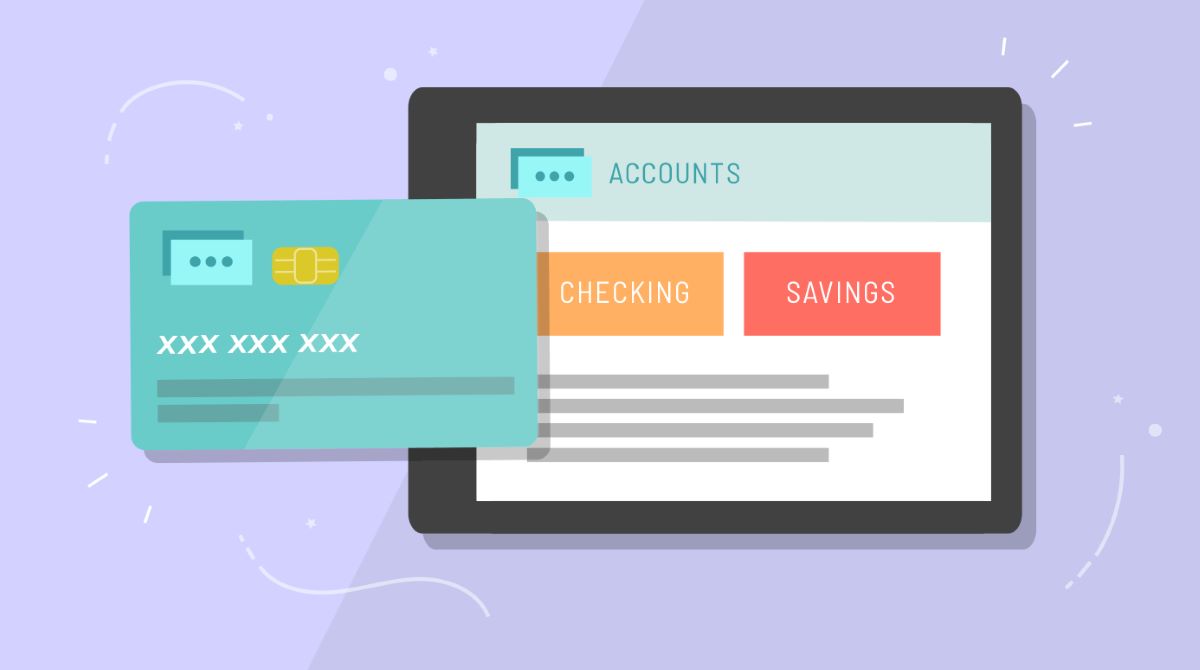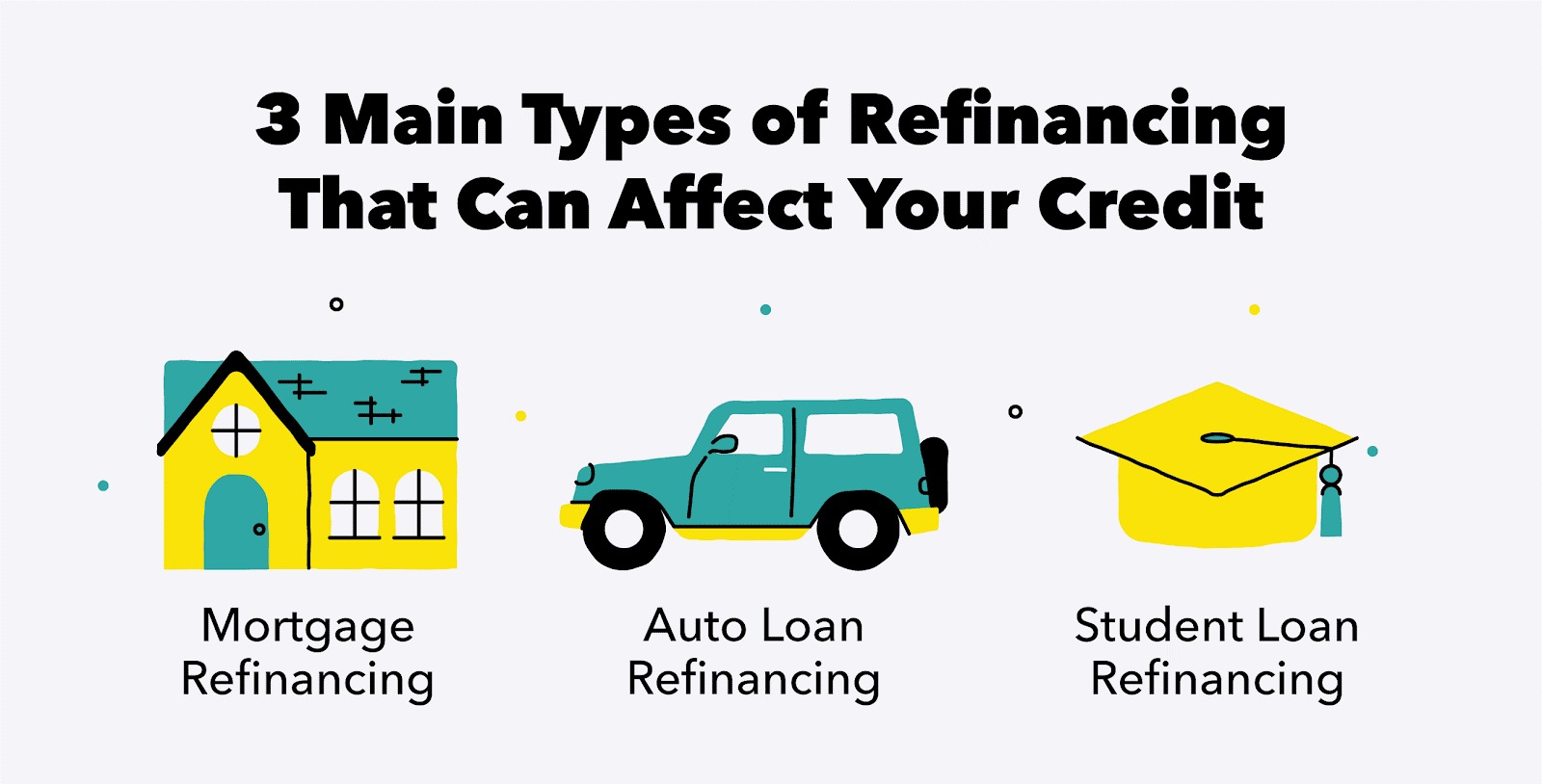

Finance
What To Do When Your Car Insurance Drops You
Published: November 14, 2023
Learn what steps to take if your car insurance suddenly drops you and find financial solutions to ensure you stay protected on the road.
(Many of the links in this article redirect to a specific reviewed product. Your purchase of these products through affiliate links helps to generate commission for LiveWell, at no extra cost. Learn more)
Table of Contents
- Introduction
- Understanding why car insurance companies drop policyholders
- Steps to take when your car insurance is dropped
- Verify the accuracy of the information
- Communicate with your insurer
- Shop for alternative insurance options
- Contact your state insurance department
- Consider professional advice
- Take preventive measures for the future
- Conclusion
Introduction
Car insurance is a necessity for every vehicle owner, providing financial protection in case of accidents, theft, or damage. However, there may be instances where your car insurance company decides to drop your policy, leaving you in a potentially stressful situation. Understanding why car insurance companies drop policyholders and knowing what steps to take can help you navigate this challenging situation with confidence.
There are several reasons why your car insurance company may decide to drop your policy. One common reason is a high-risk driving behavior, such as multiple speeding tickets, DUI convictions, or involvement in at-fault accidents. Insurers are wary of insuring individuals who pose a higher risk of potential claims and may choose to terminate the policy as a result.
Another reason for policy cancellation can be non-payment of premiums. If you fail to pay your insurance premiums on time, your insurer may drop your policy. Additionally, if your insurance company undergoes changes in the underwriting guidelines or decides to exit the market, they may also notify you of the policy termination.
If you find yourself in a situation where your car insurance is dropped, it’s important to know what steps to take to protect yourself and find alternative coverage. By understanding the process and being proactive, you can ensure that you have adequate insurance coverage and minimize any potential financial or legal implications.
Understanding why car insurance companies drop policyholders
Car insurance companies are in the business of evaluating risk and pricing their policies accordingly. When policyholders exhibit behavior or circumstances that increase their risk profile, insurance companies may choose to drop their policies. Understanding these reasons can help you navigate the situation better and potentially avoid policy cancellations in the future.
One common reason for policy cancellations is a history of high-risk driving behavior. Insurance companies use your driving record as a measure of your risk as a policyholder. If you have a history of multiple speeding tickets, DUI convictions, or at-fault accidents, you may be considered a high-risk driver. Insurance companies may decide to drop your policy to reduce their exposure to potential claims.
Non-payment of premiums is another common reason for policy cancellations. If you consistently fail to pay your insurance premiums on time, your insurer may deem you unreliable and cancel your policy. Insurance companies require timely premium payments to sustain their business and provide coverage to their policyholders. Failure to meet this obligation may result in policy termination.
Changes in underwriting guidelines or the company’s decision to exit a particular market can also lead to policy cancellations. Insurance companies regularly review their underwriting guidelines and may make adjustments based on their risk appetite. If your policy no longer aligns with their updated guidelines, they may choose to terminate it. Similarly, if an insurer decides to withdraw from a specific market, they may notify policyholders of the termination of their policies.
It’s important to note that insurance companies are required to provide notice before canceling a policy. This notice period may vary depending on the state and the reason for termination. Understanding your rights as a policyholder and familiarizing yourself with the terms and conditions of your policy can help you navigate the process and explore alternative coverage options.
By understanding the reasons why car insurance companies drop policyholders, you can take steps to mitigate your risk and potentially avoid policy cancellations. Maintaining a clean driving record, paying your premiums on time, and staying informed about any changes in your insurer’s underwriting guidelines can increase your chances of retaining your car insurance coverage.
Steps to take when your car insurance is dropped
Discovering that your car insurance has been dropped can be a stressful experience. However, it’s important to stay calm and take proactive steps to ensure that you maintain continuous coverage and protect yourself financially. Here are some essential steps to take when your car insurance is dropped:
- Verify the accuracy of the information: Before taking any action, make sure to verify the details regarding the cancellation of your policy. Review the notice from your insurance company and ensure that the information is accurate and reflects your current situation.
- Communicate with your insurer: Reach out to your insurance company to understand the reasons for the policy termination and discuss potential options. In some cases, there may be an opportunity to rectify the situation and reinstate your coverage, especially if the cancellation was due to a misunderstanding or administrative error.
- Shop for alternative insurance options: Start researching and obtaining quotes from other insurance providers to secure a new policy. It’s essential to have continuous coverage to comply with legal requirements and protect yourself financially in case of accidents or damage.
- Contact your state insurance department: Depending on the circumstances, you may need to escalate the issue and seek assistance from your state insurance department. They can provide guidance on your rights and answer any questions or concerns you may have regarding the policy cancellation.
- Consider professional advice: If the termination of your car insurance has significant consequences or if you are facing challenges finding alternative coverage, consider seeking professional advice. Consult an insurance broker or an attorney specializing in insurance law to guide you through the process and ensure that your rights are protected.
- Take preventive measures for the future: Reflect on the reasons why your car insurance was dropped and take steps to mitigate those risks. Improve your driving habits, attend defensive driving courses, and maintain a clean driving record. Additionally, ensure timely premium payments and stay informed about any changes in underwriting guidelines to reduce the chances of future policy cancellations.
Remember, being proactive and thorough in your approach is crucial when your car insurance is dropped. By taking these steps, you can find alternative coverage, protect yourself financially, and minimize any potential legal or regulatory complications.
Verify the accuracy of the information
When you receive a notice that your car insurance has been dropped, it’s important to take the first step of verifying the accuracy of the information. Mistakes can happen, and it’s critical to ensure that the cancellation was not based on a misunderstanding or administrative error.
Start by thoroughly reviewing the notice from your insurance company. Check for any discrepancies or incorrect details, such as policy numbers, vehicle information, or personal information. Ensure that the reason provided for the cancellation aligns with your actual circumstances. For example, if the reason stated is non-payment of premiums, verify that you have indeed missed payments or if there are any payment discrepancies.
If you find any inaccuracies or inconsistencies, contact your insurance company immediately to rectify the situation. Be prepared to provide any relevant documentation or information to support your case. It’s crucial to resolve any misunderstandings or errors as soon as possible to prevent unnecessary hassles and to retain your coverage.
In some cases, the situation may be resolved quickly through a simple clarification or correction. However, if the cancellation was due to non-payment of premiums or other policy violations, the accuracy of the information may not be in question. In such cases, you will need to focus on the next steps to secure alternative coverage and protect yourself financially.
Remember, communication is key during this process. Stay calm, be respectful when discussing the issue with your insurer, and provide any necessary documentation to support your case. By verifying the accuracy of the information, you can ensure that you are dealing with a legitimate cancellation and take appropriate action to address the situation effectively.
Communicate with your insurer
Once you have verified the accuracy of the information regarding the cancellation of your car insurance policy, the next step is to communicate with your insurer. It’s important to understand the reasons behind the policy termination and explore potential solutions or alternatives.
Reach out to your insurance company’s customer service department or your assigned agent to discuss the situation. Explain that you received a notice of policy cancellation and express your desire to address the issue. Be prepared to provide any necessary information or documentation that may help in resolving the situation.
During your communication with your insurer, it’s essential to remain calm and respectful. It may be frustrating to deal with a policy cancellation, but maintaining a professional demeanor will increase your chances of finding a resolution. Explain your concerns, ask questions, and seek clarification on any aspects of the policy cancellation that you don’t understand.
Depending on the circumstances, there may be options available to rectify the situation. If the cancellation was due to non-payment of premiums, you may have the opportunity to make the outstanding payment and reinstate your coverage. In other cases, your insurer may be able to provide guidance on alternative coverage options within their company or refer you to other insurers who may be willing to provide coverage.
However, it’s important to note that the insurer is not obligated to reinstate or continue your coverage if the policy cancellation was based on legitimate reasons. If your insurer confirms that the cancellation is valid and cannot be reversed, it’s crucial to proceed with the next steps to secure alternative car insurance coverage in a timely manner.
Keep detailed records of all your communication with your insurer, including dates, names of representatives, and summaries of the discussions. This will serve as important documentation during the process and any potential future needs.
Remember, open and clear communication with your insurer is essential when your car insurance is dropped. It allows you to understand the reasons behind the policy cancellation, explore possible solutions, and make informed decisions about your next steps.
Shop for alternative insurance options
When your car insurance is dropped, it’s crucial to start shopping for alternative insurance options as soon as possible. Maintaining continuous coverage is not only a legal requirement in most states, but it also protects you financially in case of accidents or damage to your vehicle.
Begin by researching and obtaining insurance quotes from different insurance companies. This will help you compare coverage options, premiums, and other aspects of the policies offered. Consider reaching out to multiple insurers, including both national carriers and local providers, to get a comprehensive view of the available options.
When shopping for alternative insurance, make sure to provide accurate and complete information about your driving history, vehicle details, and any other relevant factors that may impact your insurance rates. This will help insurers provide you with accurate quotes and avoid any potential discrepancies later on.
In addition to reaching out to insurance companies directly, you may also consider working with an insurance broker. Brokers have access to multiple insurance carriers and can help you find suitable coverage based on your specific needs and circumstances. They can provide guidance and recommendations, simplifying the process of finding alternative insurance options.
When reviewing different insurance options, pay attention to the coverage limits, deductibles, and any additional features or add-ons available. Consider not only the cost but also the overall value and level of protection provided by each policy. This will ensure that you find the best insurance option that suits your needs and offers adequate coverage.
Keep in mind that insurance companies may have different underwriting policies and risk appetites. If you have a history of high-risk driving behavior or other factors that may classify you as a higher-risk driver, finding affordable coverage may be more challenging. In such cases, working with an insurance broker who specializes in high-risk policies can be beneficial.
Once you have selected an alternative insurance option that meets your requirements, initiate the process of purchasing the policy. Ensure that there is no gap in coverage between the termination of your previous policy and the start of the new one.
Remember, shopping for alternative insurance options is a critical step when your car insurance is dropped. It allows you to maintain continuous coverage, protect yourself financially, and comply with legal requirements.
Contact your state insurance department
If you find yourself in a situation where your car insurance has been dropped and you are facing challenges obtaining alternative coverage, it can be helpful to contact your state insurance department. The state insurance department is a regulatory agency that oversees insurance companies and policies within their jurisdiction.
By reaching out to your state insurance department, you can seek guidance, clarification, and assistance regarding your rights as a policyholder. They can provide valuable information and resources to help you navigate the situation effectively. Here are a few reasons why contacting your state insurance department may be beneficial:
1. Understanding your rights: State insurance departments are responsible for enforcing insurance laws and regulations. They can provide information on your rights as a policyholder and any legal requirements that insurance companies must follow. Knowing your rights can help you determine if the policy cancellation was handled correctly and if any recourse is available to you.
2. Assistance in resolving disputes: If you believe that there has been an error or unfair treatment in the cancellation of your policy, the state insurance department can help mediate and resolve disputes. They can investigate the matter, review relevant documentation, and work towards a fair resolution.
3. Guidance on finding alternative coverage: If you are struggling to find alternative insurance coverage due to specific circumstances, the state insurance department may be able to provide guidance and recommend resources. They may have information on specialized insurance programs or other options available to policyholders who are deemed high-risk or face challenges obtaining coverage.
4. Reporting unfair practices: If you suspect that your policy was unfairly canceled or that the insurance company engaged in unethical practices, contacting the state insurance department allows you to report such actions. This helps protect other consumers and ensures that insurance companies adhere to the appropriate regulations and standards.
When contacting your state insurance department, be prepared to provide relevant details, such as your policy information, the reason for the policy cancellation, and any documentation related to the issue. The department will guide you on the specific information they require to assist you effectively.
Remember, the state insurance department is there to help you, advocate for your rights, and ensure that insurance companies follow proper procedures. If you are experiencing difficulties with your car insurance situation, do not hesitate to reach out to them for assistance.
Consider professional advice
When dealing with a dropped car insurance policy, you may encounter complexities and challenges that require professional advice. In such situations, considering the guidance of insurance professionals, such as insurance brokers or attorneys specializing in insurance law, can be invaluable in navigating the process and protecting your interests.
Here are a few reasons why seeking professional advice may be beneficial:
1. In-depth knowledge and expertise: Insurance professionals have a deep understanding of the insurance industry, including policies, regulations, and underwriting practices. They can provide you with insights and guidance specific to your situation, helping you make informed decisions and take appropriate actions.
2. Personalized recommendations: Insurance brokers can assess your insurance needs, driving history, and specific circumstances and recommend suitable coverage options. They have access to multiple insurance companies and can provide you with quotes and policy options tailored to your unique requirements, which can save you time and effort in finding alternative coverage.
3. Support during disputes: If you believe that your policy cancellation was unjust or if you encounter challenges during the claims process, an attorney specializing in insurance law can provide legal advice and representation. They can help you navigate the legal complexities, advocate for your rights, and ensure that you are treated fairly.
4. Negotiating power: Insurance professionals have experience in negotiating with insurance companies on behalf of their clients. They understand the industry’s dynamics and can often secure more favorable terms and pricing for your new insurance policy.
5. Protection from future issues: Insurance professionals can assist you in assessing your risk profile and implementing preventive measures to avoid future policy cancellations. They can guide you on improving your driving record, understanding policy terms and conditions, and staying informed about changes in insurance regulations and requirements.
When seeking professional advice, ensure that you choose reputable and qualified professionals. Research their background, credentials, and client reviews to ensure that they have the necessary expertise and a track record of providing reliable guidance. Consider scheduling consultations or interviews with multiple professionals to find the right fit for your needs.
While professional advice may come at a cost, the potential benefits and peace of mind can outweigh the investment. Professionals can help you navigate the complexities of the insurance industry, ensuring that you make informed decisions and protect yourself financially.
Take preventive measures for the future
Experiencing a dropped car insurance policy can be a wakeup call to reevaluate your driving habits and take preventive measures to avoid similar situations in the future. By proactively addressing risk factors and demonstrating responsible behavior, you can reduce the chances of policy cancellations and maintain continuous coverage.
Here are some preventive measures you can take:
1. Improve your driving habits: Focus on safe and responsible driving practices. Observe speed limits, avoid distracted driving, and always follow traffic laws. By avoiding accidents and traffic violations, you can keep your driving record clean and reduce the risk of policy cancellations due to high-risk driving behavior.
2. Attend defensive driving courses: Consider enrolling in defensive driving courses. These programs can help enhance your driving skills, improve your knowledge of road safety, and potentially qualify you for insurance discounts. Completing these courses demonstrates your commitment to responsible driving and may be viewed favorably by insurance companies.
3. Maintain a clean driving record: Avoid traffic violations and at-fault accidents, as they can negatively impact your driving record. Insurance companies review your driving history when determining policy eligibility and pricing. By keeping your record clean, you demonstrate your low-risk profile and reduce the likelihood of policy cancellations.
4. Timely premium payments: Pay your insurance premiums on time to ensure continuous coverage. Set reminders or automate payments to avoid missed deadlines, which can lead to policy cancellations. If necessary, consider setting up a budget or payment plan to better manage your finances and prioritize insurance payments.
5. Stay informed: Keep yourself updated on changes in insurance regulations and requirements in your state. Regularly review your policy terms and conditions to ensure compliance. Understand any changes in underwriting guidelines, coverage options, or discounts offered by your insurance company. This knowledge will empower you to make informed decisions and proactively manage your insurance coverage.
6. Consider risk mitigation: If you have a history of high-risk driving behavior, such as multiple accidents or traffic violations, you may want to explore risk mitigation options. Installing devices such as telematics devices or dashboard cameras in your vehicle can help monitor and improve your driving behavior. Some insurance companies offer discounts for using these risk mitigation tools.
By taking these preventive measures, you can demonstrate your commitment to responsible driving and reduce the likelihood of policy cancellations in the future. Your efforts to maintain a clean driving record, make timely premium payments, stay informed, and consider risk mitigation strategies will position you as a low-risk policyholder and enhance your chances of securing and retaining car insurance coverage.
Conclusion
Dealing with a dropped car insurance policy can be a stressful and challenging experience. However, by taking the right steps and being proactive, you can navigate the situation effectively and secure alternative coverage to protect yourself financially.
Remember to verify the accuracy of the information regarding the policy cancellation and communicate with your insurer to understand the reasons behind it. Shopping for alternative insurance options, contacting your state insurance department, and seeking professional advice can provide valuable guidance and support during this process.
Additionally, taking preventive measures for the future, such as improving your driving habits, attending defensive driving courses, maintaining a clean driving record, and making timely premium payments, can help you avoid potential policy cancellations in the long run.
Ultimately, it’s important to stay informed, be proactive, and advocate for yourself throughout the process. By doing so, you can mitigate the impact of a dropped car insurance policy and ensure your continued coverage and financial protection.














